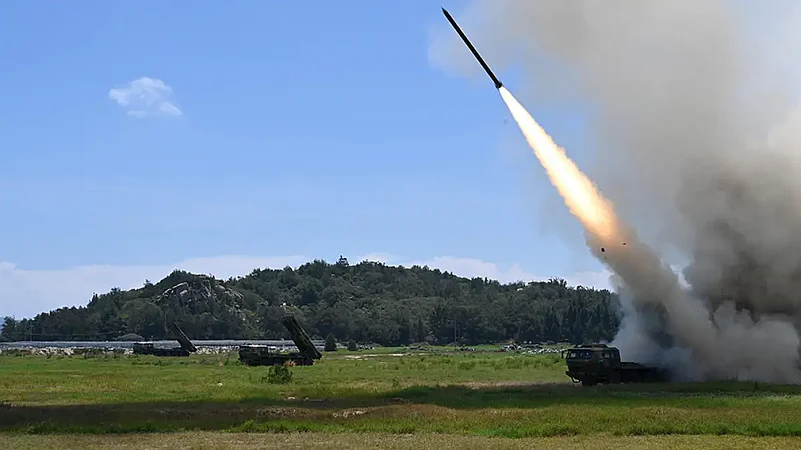The Chinese biggest-ever military exercises around Taiwan entered its fourth day on Sunday, in which it has so far deployed over a hundred aircraft including fighter planes, warships, and has carried out ballistic missile launches.
Following US House of Representative Nancy Pelosi's visit to Taiwan, the Chinese launched these military exercise in a show of force to Taiwan and the United States, and in display of its resolve to undermine the sovereignty of Taiwan. Chinese missiles not just flew over Taiwan mainland but also landed in exclusive economic waters of Japan.
China on Sunday said it carried out its fourth consecutive day of military drills in the air and sea around Taiwan, despite international calls to calm the tensions. The People's Liberation Army said the exercises focused on testing its long-range air and ground strikes. It did not say if it will continue the drills after Sunday.
Advertisement
Taiwan said that it continued to detect several batches of Chinese aircraft, ships and drones operating around the Taiwan Strait, which separates the island and mainland China, and “simulating attacks on the island of Taiwan and our ships at sea”.
Taiwan's official Central News Agency meanwhile reported that Taiwan's army will conduct live-fire artillery drills in southern Pingtung County on Tuesday and Thursday, in response to the Chinese exercises. The drills will include snipers, combat vehicles, armored vehicles as well as attack helicopters, said the report, which cited an anonymous source.
China set up no-go areas around Taiwan for the four-day drills it announced immediately after Pelosi's trip to Taipei on Tuesday and Wednesday that infuriated Beijing, which saw it as a violation of the "One China Policy". China claims Taiwan and has threatened to annex it by force if necessary. The two sides split in 1949 after a civil war, but Beijing considers visits to Taiwan by foreign officials as recognizing its sovereignty.
Advertisement
Taiwan's Ministry of National Defence emphasised that its military was surveilling the situation and had dispatched aircraft and ships to respond accordingly.
Taiwan President Tsai Ing-wen has called on the international community to "support democratic Taiwan" and "halt any escalation of the regional security situation".
China has so far conducted missiles strikes on targets in the seas around Taiwan, and sent warships across the Taiwan Straits median line. It has also cut off defense and climate talks with the US and imposed sanctions on Pelosi in retaliation for her visit.
Amid ongoing military provocation, China signalled further escalation as its military announced another set of war games from Monday in the northern Yellow Sea off the South Korean coast in an apparent warning to the US troops stationed there. China’s Maritime Safety Administration issued a navigational warning that the exercises would last 14 days.
The Biden administration and Pelosi say the US remains committed to the "One-China Policy" that recognises Beijing as the legitimate government but allows informal relations and defense ties with Taipei. The US however criticised Beijing's actions in the Taiwan Strait, with White House press secretary Karine Jean-Pierre calling them “fundamentally irresponsible”.
“There's no need and no reason for this escalation,” Jean-Pierre said.
Singapore's coordinating minister for national security Teo Chee Hean said in a Facebook post on Saturday that the US-China tensions over Taiwan is “an issue that can lead to conflict and war to the detriment of all parties involved, especially the people in Taiwan”.
Advertisement
The tensions have a negative impact on Southeast Asia, Teo said, adding: "We hope that wisdom will prevail.”
(With AP inputs)




















